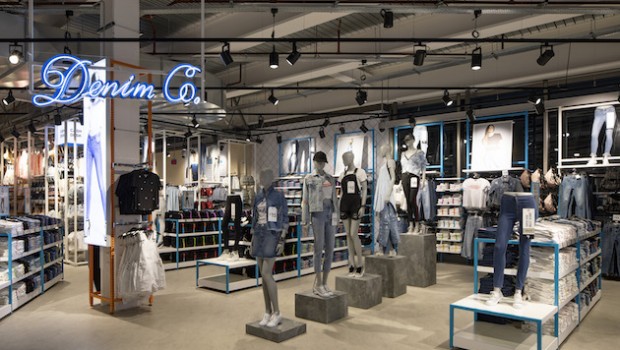Primark owner ABF lifts guidance as consumer spending holds up

Primark owner Associated British Foods lifted full-year guidance consumer spending proved to be more resilient in the first half, with Britons buying early for the summer.
Associated British Foods
2,001.00p
17:15 07/01/25
Food Producers & Processors
7,324.83
17:14 07/01/25
FTSE 100
8,251.03
17:14 07/01/25
FTSE 350
4,528.79
17:14 07/01/25
FTSE All-Share
4,484.17
16:44 07/01/25
The group on Monday said it now expected adjusted operating profit to be broadly in line with the previous financial year after previously forecasting adjusted operating profit below the £1.44bn made in 2021-22.
It had previously warned that higher energy and commodities prices would hit profits, potentially causing a downturn in consumer spending, but stronger-than-expected trading at Primark at Christmas defied the gloomy outlook along with an easing in inflation volatility.
AB Foods, which also owns sugar, grocery, agriculture and ingredients businesses, said Primark traded “very well” for the half year, with total sales expected to be £4.2bn, up 19% on the same period last year at actual exchange rates.
“We believe our proposition of great quality at affordable prices and attractive store experience is proving increasingly appealing to both existing and new customers,” the company said, and added that early reaction to its spring and summer ranges had been positive as Britons prepared to take summer holidays they had postponed due to Covid lockdowns.
Adjusted operating profit margin for the half was forecast to be above 8%, compared with last year’s first half margin of 11.7%. The margin reduction is due to the higher cost of bought-in goods, driven by a stronger US dollar against sterling and the euro, higher freight rates, along with wage and energy inflation.
“In the second half the recovery of significant inflation in our input costs remains a management priority but inflation has become less volatile and recently some commodity costs have declined. Macro-economic headwinds for the consumer remain and may weigh on spending in the months ahead,” the company said.
“At Primark, we remain cautious about the resilience of consumer discretionary spending in the face of continuing inflation in the cost of living and higher interest rates.”
“Trading at Primark has been good in all its markets, well ahead of expectations, and represents a material improvement in both the UK and Europe on the second half of our last financial year … early reaction to our spring and summer ranges has been very positive,” the company said in a update ahead of interim results in April.
Hargreaves Lansdown analyst Aarin Chiekrie said cost inflation continued to be a challenge for AB Foods.
"The group’s trying to offset this through price increases, but this risks alienating the value-chain’s core customer base. This means that cost increases haven’t been fully passed onto customers so far," he said.
"One of ABF’s main strengths is its diversified business portfolio, which includes many well-known food brands such as Kingsmill, Ryvita and Twinings. This diversification helps to mitigate risk and ensures that the company isn’t overly reliant on any one particular product."
"In the short-term, inflationary pressures are likely to continue to weigh against profits, but in the longer term, with inflation easing and commodity costs normalising, there’s plenty of room for ABF to restore margins. With the group currently trading well below its long-term average, there could be an opportunity for investors willing to ride out the near-term turbulence.”
Reporting by Frank Prenesti for Sharecast.com